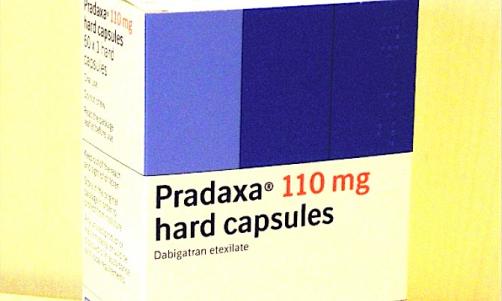
BMJ investigation raises new concerns over Pradaxa
pharmafile | July 24, 2014 | News story | Medical Communications, Research and Development, Sales and Marketing | BMJ, Boehringer, Channel 4, Pradaxa, blood, warfarin
An investigation by The BMJ has raised fresh concerns about Boehringer’s top-selling blood thinner Pradaxa (dabigatran) and the regulatory decisions that led to its approval.
The report says that company’s information about the benefits of monitoring blood levels of the drug – and how this would reduce the risk of major bleeding in patients taking the drug – was not shared with regulators.
According to Thomas Moore who is the senior scientist at US Institute for Safe Medication Practices, reducing bleeding “deserved to be ranked as a patient safety issue of the first order”.
Company documents show how major bleeds could be reduced by 30-40% compared with well controlled warfarin (the widely used generic blood-thinning drug). But The BMJ says it has found that neither doctors nor regulators have ever been aware of these calculations.
The report also argues that new stroke prevention guidelines are based on ‘incomplete’ evidence.
Pradaxa, made by Boehringer, is one of three new oral anticoagulants along with J&J/Bayer’s Xarelto and Pfizer/BMS’s Eliquis that prevent strokes in patients with irregular heart rhythm (known as atrial fibrillation).
The condition affects around 800,000 Britons and more than three million Americans, and raises the risk of stroke by up to five times.
Pradaxa works by preventing blood from clotting and is marketed as a better alternative to warfarin, because patients don’t need tests to check if they have the right amount of drug in their bloodstream.
Its main benefits were documented in a single clinical trial (called RE-LY). But according to The BMJ’s investigation, the regulators “had concerns about the design and oversight of the trial”.
The BMJ says it has learnt that it took three reviews of the data to calculate the number of major and fatal bleeds among trial participants, and even today there are doubts if all events have been properly accounted for.
Documents obtained under freedom of information show that regulators questioned the company about the need for monitoring drug levels in the blood.
But despite these concerns, dabigatran was approved by the FDA in 2010 and by the EMA in 2011 without the need for blood tests to check drug levels.
Boehringer has strongly denied these latest claims, saying the anti-clotting activity or blood levels of its drug do not need to be monitored. The firm told The BMJ: “Our scientists determined, and the FDA concurred, that the research does not support making dosage decisions based on plasma concentrations – a conclusion based solely on science and patient welfare.”
They added that this information was not shared because the analysis did not provide a reliable prediction of patient outcomes.
Narrow range of issues
Speaking to Pharmafile Boehringer says that they are concerned that this investigation has attempted to ‘sensationalise the facts’, and has chosen to focus on ‘a very narrow range of issues’.
A spokesman for the firm explains: “From the questions they [the BMJ] have put to us, they clearly do not have a full understanding of either the complexities of treating atrial fibrillation or the volume of data (both real world and trial-based) that we have supplied.
“What is also deeply concerning is that they have chosen to specifically name a patient involved in our trial, and, on several occasions, asked us to comment on their case. We have refused to comply with these requests because to do so would not only be extremely unethical, it would also be in breach of the regulatory framework.”
A TV report on Pradaxa by Channel 4 news was scheduled to appear late last night in the UK, and leading up to it Boehringer took to Twitter largely to discount what is says are false claims – but the item did not make an appearence due to ongoing coverage around the conflict in Gaza.
Ben Adams
Related Content

Lilly and Boehringer’s Jardiance reduces hospitalisation and CV death risk from heart failure at Phase 3
Boehringer Ingelheim and Eli Lilly have announced strong Phase 3 news on their sodium-glucose co-transporter-2 …

Boehringer withdraws its £700m investment in Hikma Pharmaceuticals
Boehringer has revealed that it intends to withdraw its investment from Hikma Pharmaceuticals, with the …

Boehringer’s TKI inhibitor Ofev gets FDA approval for chronic fibrosing interstitial lung diseases with a progressive phenotype
The FDA has green-lit Boehringer Ingelheim’s multi-targeted tyrosine kinase inhibitor Ofev (nintedanib) in the treatment …








